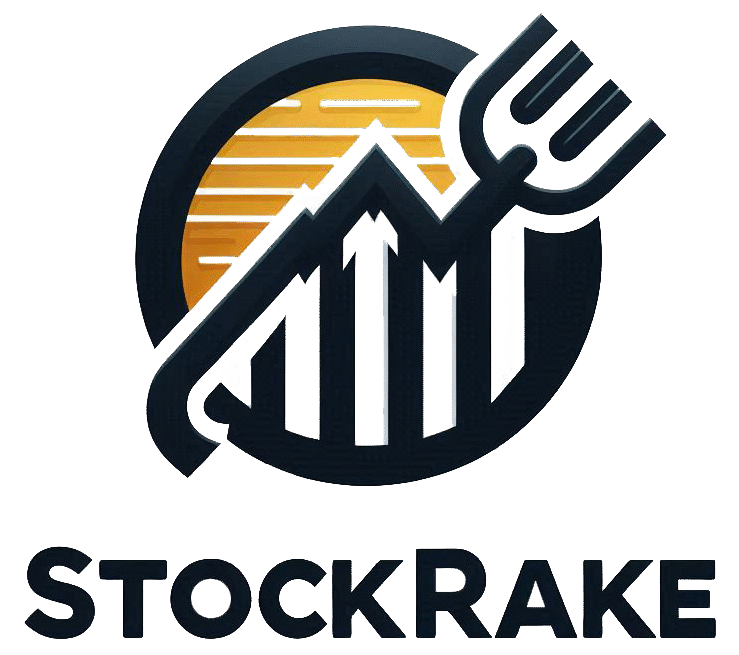When the market gets shaky—because of things like wars, inflation, elections, or a possible recession—investors start looking for something more stable. That’s when “safe stocks” come into the spotlight. These aren’t fast-growing tech companies or trendy investments. They’re solid, dependable companies that can help you sleep better at night, even when markets get rough.
🔐 What Makes a Stock “Safe”?

A safe stock isn’t just one that hasn’t dropped yet. It’s a company built to last. These businesses usually have steady income, pay regular dividends, and have strong financial health. They might not make you rich overnight, but they’re designed to survive tough times.
🧱 Key Traits of Safe Stocks
Low Volatility (Less Up-and-Down Movement)
Safe stocks usually don’t swing wildly with the market. This is measured using something called beta. A beta lower than 1 means the stock is less volatile. Most safe stocks have a beta between 0.3 and 0.7—so they don’t panic when the market does.
Reliable Dividends
Companies that pay regular (or even growing) dividends during good and bad times show stability. Plus, dividends give you passive income while you wait for the market to bounce back.
Strong Balance Sheets
Think of debt like holes in a boat—too many, and you’ll sink when things get stormy. Safe stocks usually have low debt, plenty of cash, and steady free cash flow.
Part of “Defensive” Sectors
Safe stocks are often found in industries that sell essentials, not luxuries. These are products and services people need no matter what the economy looks like.

Also Read: What Is a Stock and How Does It Work?
🛡️ Most Reliable Sectors for Safe Stocks

1. Utilities
Think electricity, water, and gas. No matter what’s happening in the world, people need these services—making utility companies a solid pick.
2. Consumer Staples
Items like soap, toothpaste, and cereal are must-haves. Companies in this sector (like those behind household-name brands) often have loyal customers and steady demand.
3. Healthcare
People don’t stop needing medicine or doctor visits just because the economy’s down. Healthcare companies usually enjoy steady income and benefit from aging populations.
4. Telecommunications
With everything so connected, services like mobile data and internet are essential. Big telecom companies often have strong cash flow and pay generous dividends.
🔍 Safe Stocks to Watch in 2025
- Johnson & Johnson (JNJ) – A healthcare giant with a long history of paying and growing dividends.
- Procter & Gamble (PG) – Maker of trusted everyday brands like Tide and Gillette, with steady performance over decades.
- Coca-Cola (KO) – A global favorite with strong brand power and dependable earnings.
- Verizon (VZ) – Not flashy, but delivers consistent income and reliable service.
- NextEra Energy (NEE) – A leading utility company that’s also a pioneer in renewable energy—safe with a side of growth.

Also Read: What’s the Difference Between Stocks and ETFs?
💸 Dividend Aristocrats & REITs: Other Safe Bets

Dividend Aristocrats
These are companies that have increased their dividend payments for at least 25 straight years. That kind of track record shows strength and discipline. Examples:
- 3M (MMM)
- McDonald’s (MCD)
- PepsiCo (PEP)
REITs (Real Estate Investment Trusts)
REITs own income-producing properties. Some, like Realty Income Corp (O), focus on recession-proof tenants like pharmacies and dollar stores—making them more stable in shaky markets.
📊 Want Safe Stocks Without Picking Them One by One?
Try ETFs (Exchange-Traded Funds) that focus on safety:
- Vanguard Dividend Appreciation ETF (VIG) – Invests in companies with a solid history of raising dividends. Great for stability and long-term growth.
- SPDR S&P Dividend ETF (SDY) – Targets high-yield dividend stocks with reliable payouts. Ideal for income-focused investors.
🧠 Smart Tips for Tough Markets

1. Don’t Panic—Stay Focused
The market can get emotional. Don’t let it drag you into bad decisions. Stick with companies that have strong foundations.
2. Diversify (But Don’t Overdo It)
Having a mix of solid sectors is smart. But owning too many stocks can get confusing. Quality over quantity.
3. Reinvest Dividends
Let your dividends buy more shares automatically. Over time, this can really grow your returns—like compounding interest.

Also Read: What Is Swing Trading and Is It Right for Beginners?
⚠️ Even Safe Stocks Have Risks
Inflation & Rising Interest Rates
Higher rates can hurt utilities and REITs by making their debt more expensive to manage.
Regulation
Industries like healthcare and telecom can be hit hard by new government rules or policy changes.
Global Shocks (Black Swan Events)
Unexpected events—like wars, pandemics, or supply chain breakdowns—can affect even the most stable companies.
Safe stocks may not make headlines, but they’re the foundation of a strong portfolio—especially when times are uncertain. If you’re looking for steady growth, reliable income, and peace of mind, these are the kinds of stocks worth your attention.

